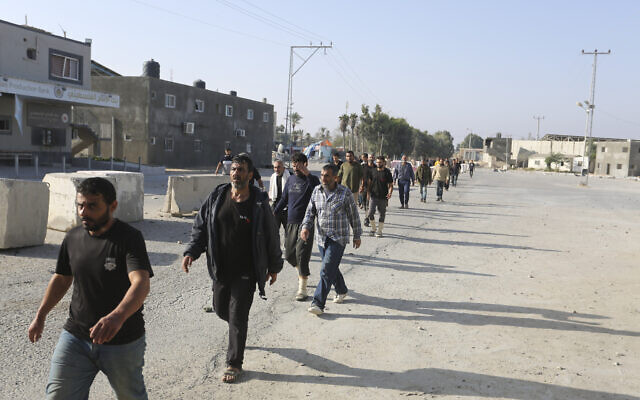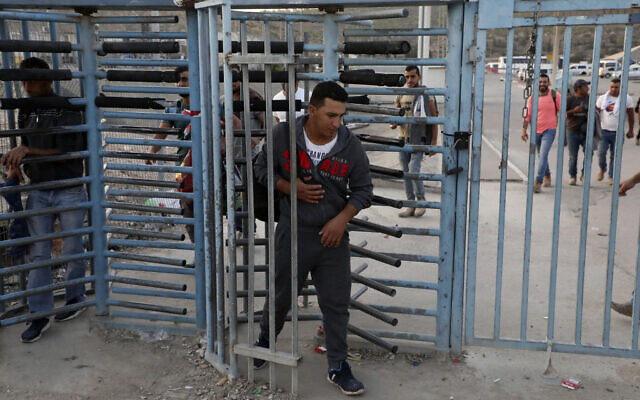



Israeli managers are “generally in favor” of the return of Palestinian employees whose work permits were cancelled after Hamas’s unprecedented attack, an Israeli business community leader told AFP.
The president of the Israeli Federation of Bi-national Chambers of Commerce, Dan Catarivas, called for a discussion on this question which has serious consequences for Israel’s economy, where entire sectors such as construction relied on Palestinian labor.
Some 120,000 Palestinians, the majority from the West Bank, had permits before the war in Gaza to enter Israel to work — but many of those were cancelled.
The permits are approved by COGAT, an Israeli defense ministry body governing civilian affairs in the Palestinian territories.
Now, more than five months into the war, only 8,000-10,000 Palestinians have been allowed back to work in Israel.
This situation has caused an unprecedented economic and social crisis in the Palestinian territories, said an International Labor Organization report, which predicted joblessness to further spike in the coming months.
The two sectors most affected are construction, and to a lesser extent agriculture, which employed seasonal workers.
The vast majority of Palestinian workers — some 80,000 out of 120,000 — coming to work in Israel were employed on construction sites.
“Today, we are talking about a slowdown of almost 50 percent in activity in this sector,” Catarivas said.
“But there is also a big lack in what we call ‘essential’ businesses such as food, pharmaceuticals, maintenance of sanitation infrastructure for example,” he added.
He noted that when the business community put pressure on the government to try to facilitate the return of Palestinian workers to these companies, a small number got the necessary approvals.
One of the key problems is uncertainty over how long the Palestinian workers’ exclusion will go on.
“Is it short term, long term, indefinitely? There is no answer,” Catarivas asked.
Filling the labor gap with foreign workers from nations like India, Sri Lanka and the Philippines is an option.
But Catarivas said the bureaucratic processes for the hiring of foreign workers are slow, and questions about housing and hiring are still unanswered.
“Has anyone in Israel asked themselves the question: do we really want to have 150,000 foreign workers to replace the Palestinian workforce, is this the right path?” he asked.
Yet, Catarivas was clear-eyed about the tremendous damage the war has done to Israeli-Palestinian relations.
“There is a major crisis of confidence between Israelis and Palestinians. Israeli employers did not wait for government measures to suspend Palestinians’ employment,” he said.
But Catarivas asserted that at the end of the day, it’s a question of realism — and the Israeli economy sees an advantage from Palestinian labor.
“For us, the best solution is not to bring in foreign labor, that is expensive and complicated,” he said. “We need to take into account security needs, but I think that the majority of employers are generally in favor of the return of Palestinian workers.”
The war is now in its sixth month and no end is in sight, despite efforts to hammer out a temporary truce that would be accompanied by a release of hostages in exchange for Palestinian security prisoners.
Catarivas said the real question is whether — after the destruction and suffering caused by the war, sparked by Hamas’s October 7 massacre — dialogue and coexistence can be advanced through economic means.
“I am one of the people who think that the majority of Palestinians want to work, send their children to school and do not get up every morning with the idea of destroying Israel,” he said.
“How do we find a way to live next to each other and work with each other for the benefit of both parties?” he asked.


